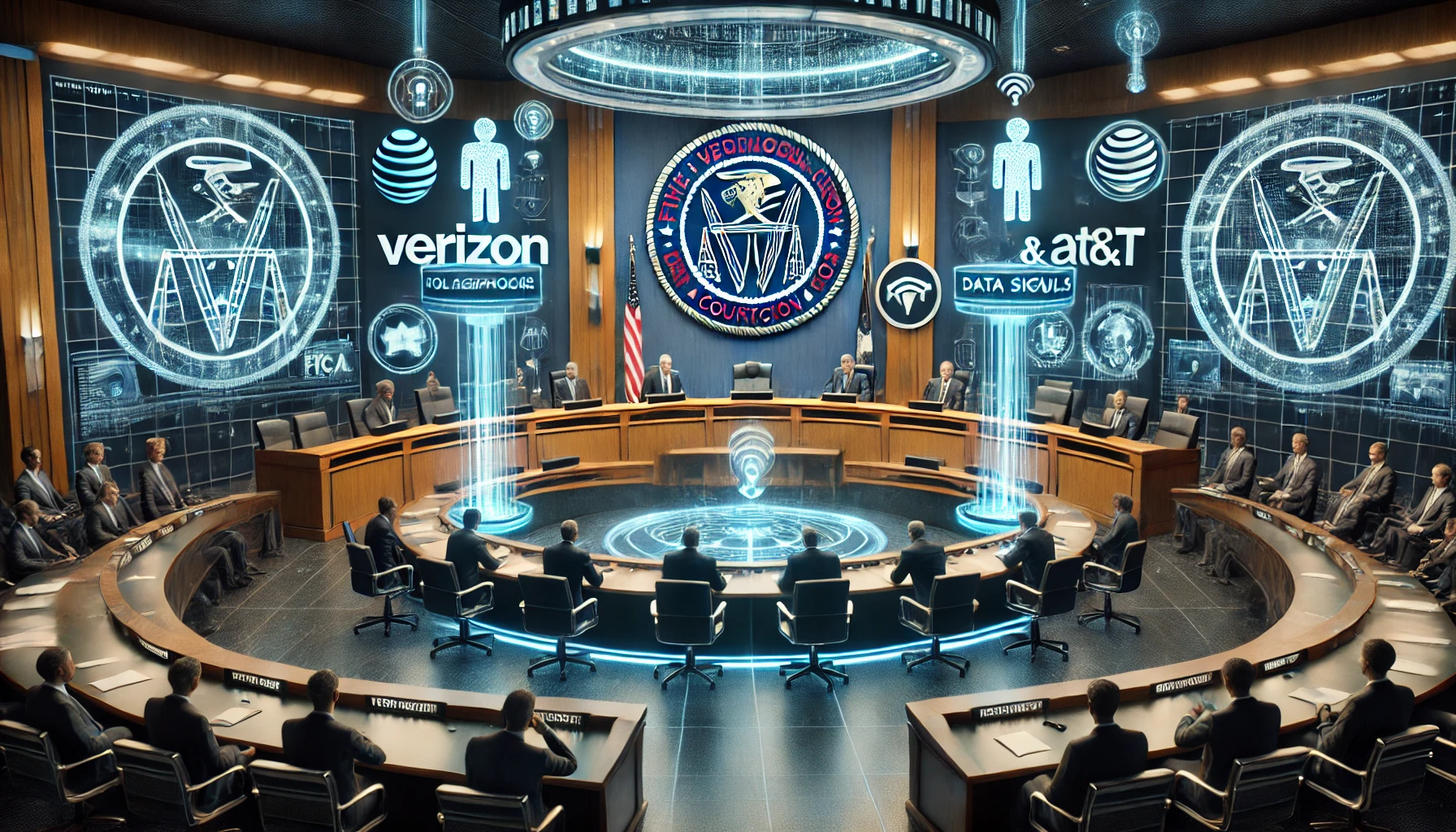Telecommunications giants Verizon and AT&T are challenging the Federal Communications Commission (FCC) over fines imposed for selling user location data. Both companies argue that the FCC lacks authority over the data in question and claim that the penalties infringe on their Seventh Amendment rights to a jury trial.
FCC Fines Spark Legal Dispute
Earlier this year, the FCC fined Verizon, AT&T, and T-Mobile for allegedly selling user location data to third-party aggregators. The fines stemmed from a 2018 investigation revealing unauthorized access to customer data without proper consent. The penalties—$46.9 million for Verizon and $57.3 million for AT&T—are part of a broader $80.1 million fine against T-Mobile and $12.2 million for its subsidiary Sprint.
Verizon and AT&T’s recent briefs argue that the FCC overstepped its authority by penalizing them, claiming that user location data doesn’t fall under the FCC’s jurisdiction. Verizon’s filing, submitted to the US Court of Appeals for the 2nd Circuit, and AT&T’s, filed in the 5th Circuit, both argue that the penalties are legally unfounded and violate the carriers’ rights.
Constitutional Claims: Right to Jury Trial
In their legal arguments, both carriers contend that the FCC’s fines violate their Seventh Amendment right to a jury trial. They point to a recent Supreme Court ruling in SEC v. Jarkesy as precedent. The court’s decision, issued in June 2024, upheld that when the Securities and Exchange Commission (SEC) imposes penalties, defendants are entitled to a jury trial.
Verizon’s brief highlights that Justice Sotomayor, in her dissent, warned that the ruling could impact several regulatory agencies, including the FCC. “As in Jarkesy, the FCC’s pursuit of ‘civil penalties… to punish’ creates an entitlement to a jury trial, not an administrative hearing,” Verizon argued. The company contends that this is a constitutional matter requiring due process and an Article III court rather than an FCC-imposed fine.
FCC’s Forfeiture Authority Under Scrutiny
The legal dispute also raises questions about the FCC’s authority to regulate location data under the Communications Act, Section 222. According to the FCC, location data is part of “customer proprietary network information” (CPNI), which requires strict confidentiality. However, AT&T argues that location data doesn’t fit within CPNI’s definition since it wasn’t obtained solely through voice services.
The FCC’s April statement insists that carriers knew they were responsible for protecting CPNI and failed to do so. The commission notes, “Location information can be very sensitive, and the duty to secure it aligns with CPNI protections.” However, the carriers counter that “bundling” multiple services with voice changes the relationship, challenging whether it should fall under FCC oversight.
Regulatory Limits and Legislative Context
FCC authority over privacy is limited compared to agencies like the Federal Trade Commission (FTC), a point highlighted by Brendan Carr, one of the FCC’s Republican commissioners. He argued that Congress did not grant the FCC sweeping power over privacy matters, which he believes should be handled by the FTC. Carr, who is expected to become FCC chair under the incoming Trump administration, has criticized the fines as “overreach.”
Moreover, there is speculation that a Republican-controlled Congress may review the FCC’s regulatory limits. Lawmakers could potentially push for an overhaul that would restrict the FCC’s powers, particularly over privacy enforcement. Trump’s stance on the FCC’s role in privacy and telecommunications policies suggests future legislative changes could impact the agency’s authority.
Carriers Question FCC’s Fair Notice
A major point of contention in the court briefs is the FCC’s “fair notice” doctrine. Both carriers argue that they lacked clear guidance on whether location data was subject to CPNI protections. AT&T’s filing asserts that the lack of specific rules or definitions on data protection led to confusion.
In its April ruling, the FCC claimed it had provided sufficient notice, citing previous warnings on CPNI protections. The commission argues that carriers should have recognized the risks of selling sensitive data and acted to protect customer privacy.
Impact on Consumers and Privacy Concerns
The FCC’s investigation initially stemmed from reports that U.S. carriers sold user location data to a third party without obtaining customer consent. Investigations revealed that, in some cases, this information reached unauthorized individuals, including a Missouri sheriff who used location-tracking services for law enforcement without legal authority. The incident raised significant privacy concerns, as it showed a failure by carriers to prevent unauthorized data access.
Despite FCC arguments to uphold the fines, both Verizon and AT&T contend that no further harm could result from the LBS program, as it was terminated prior to the penalties. The companies argue that the punishment is excessive given the efforts they made to halt data-sharing practices. However, privacy advocates contend that the FCC’s actions are a necessary deterrent to protect consumers from data exploitation.
Supreme Court’s Influence and Future Proceedings
As the case unfolds, the Supreme Court’s ruling in Jarkesy may set a precedent for regulatory actions by agencies like the FCC. Should the court agree with the carriers, it could impact a variety of agencies that impose fines without jury trials.
The carriers are optimistic about their case given the precedent, though the FCC remains steadfast in its stance. The outcome may influence future FCC policies on data privacy, especially in light of potential legislative changes under the Trump administration.
Balancing Consumer Privacy and Carrier Rights
The legal battle between the FCC and major carriers illustrates the challenges of balancing privacy regulations with corporate rights. While the FCC seeks to hold companies accountable, carriers argue for limitations on federal authority, citing constitutional rights and regulatory scope.
As the courts examine these cases, the rulings could redefine the FCC’s role in consumer protection and reshape privacy enforcement. With Trump’s critical stance and potential policy changes on the horizon, the future of the FCC’s regulatory power remains uncertain.
credit
Related Posts
-
Salt Typhoon: Chinese Cyber Espionage Group Infiltrates U.S. Telecom Networks











